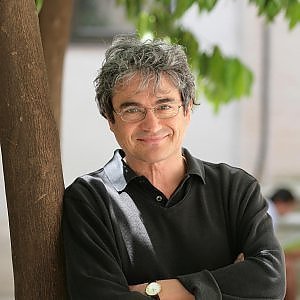 author
authorDiscover the Best Books Written by James Lovelock
James Ephraim Lovelock was an independent English scientist, environmentalist, and futurist. He is best known for proposing the Gaia hypothesis, which postulates that the Earth functions as an automated system.
With a Ph.D. in medicine, Lovelock began his career performing cryopreservation experiments on rodents, including successfully thawing frozen specimens. His methods were influential in the theories of cryonics. He invented the electron capture detector and, using it, became the first to detect the widespread presence of chlorofluorocarbons in the atmosphere. While designing scientific instruments for NASA, he developed the Gaia hypothesis.
In the 2000s, he proposed a method of climate engineering to restore carbon dioxide–consuming algae. He was an outspoken member of Environmentalists for Nuclear Energy,[4] asserting that fossil fuel interests have been behind opposition to nuclear energy, citing the effects of carbon dioxide as being harmful to the environment and warning of global warming due to the greenhouse effect. He wrote several environmental science books based on the Gaia hypothesis from the late 1970s.
For decades he also worked for MI5, the British security service. In The Sunday Times, Bryan Appleyard described him as "basically Q in the James Bond films." After leaving school, Lovelock worked at a photography firm, attending Birkbeck College during the evenings, before being accepted to study chemistry at the University of Manchester, where he was a student of the Nobel Prize laureate Professor Alexander Todd.
Lovelock worked at a Quaker farm before a recommendation from his professor led him to take up a Medical Research Council post, working on ways to shield soldiers from burns. Lovelock refused to use the shaved and anesthetized rabbits used as burn victims and exposed his skin to heat radiation instead, an experience he describes as "exquisitely painful." His student status enabled temporary military service deferment during the Second World War, but he registered as a conscientious objector. He later abandoned his conscientious objection in light of Nazi atrocities and tried to enlist in the armed forces. However, he was told that his medical research was too valuable to approve the enlistment.
In 1948, Lovelock received a Ph.D. in medicine at the London School of Hygiene and Tropical Medicine. He spent the next two decades working at London's National Institute for Medical Research. In the United States, he conducted research at Yale, Baylor College of Medicine, and Harvard University.
In the mid-1950s, Lovelock experimented with the cryopreservation of rodents, determining that hamsters could be frozen and revived successfully. Hamsters were frozen, with 60% of the water in the brain crystallized into ice, with no adverse effects recorded. However, other organs were shown to be susceptible to damage. The results were influential in the theories of cryonics. Lovelock's experiments were covered in an interview with YouTuber Tom Scott in May 2021, discussing the possibility that Lovelock may have accidentally invented the tabletop microwave oven when he discovered that a person could bake a potato in his magnetron-based emitter while conducting these experiments.
A lifelong inventor, Lovelock created and developed many scientific instruments, some of which were designed for NASA in its planetary exploration program. While working as a NASA consultant, Lovelock developed the Gaia hypothesis, for which he is most widely known.
Best author’s book




















